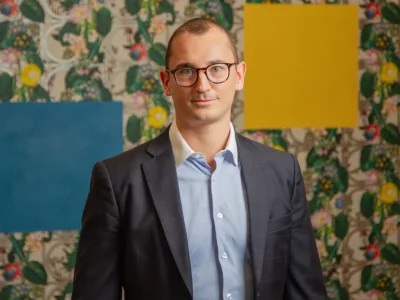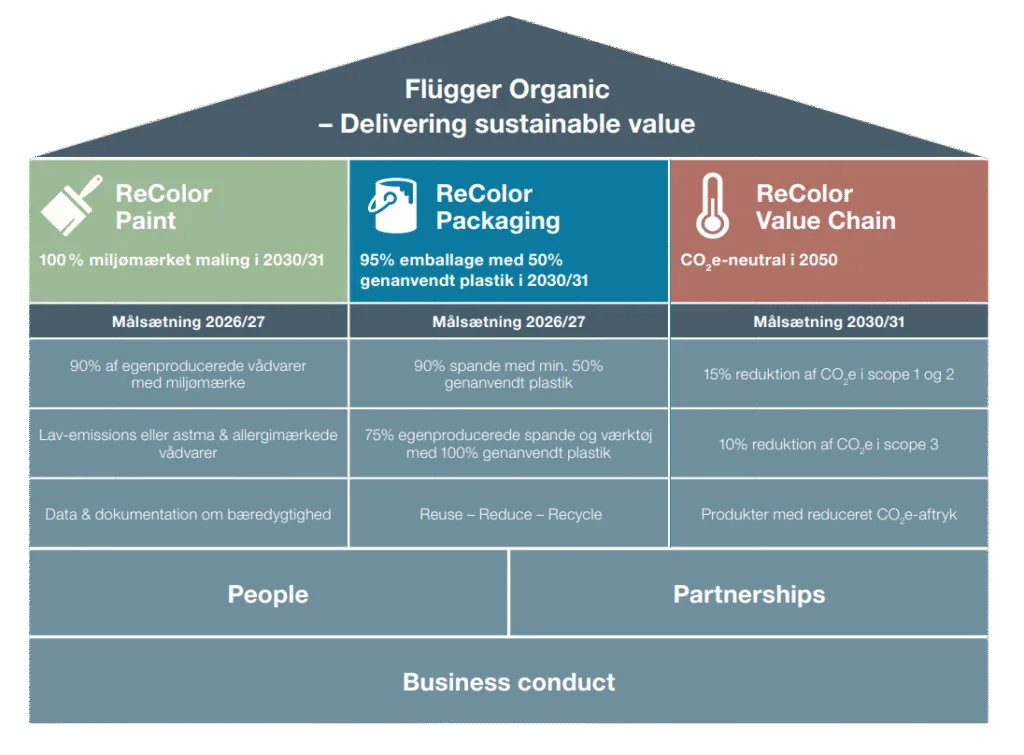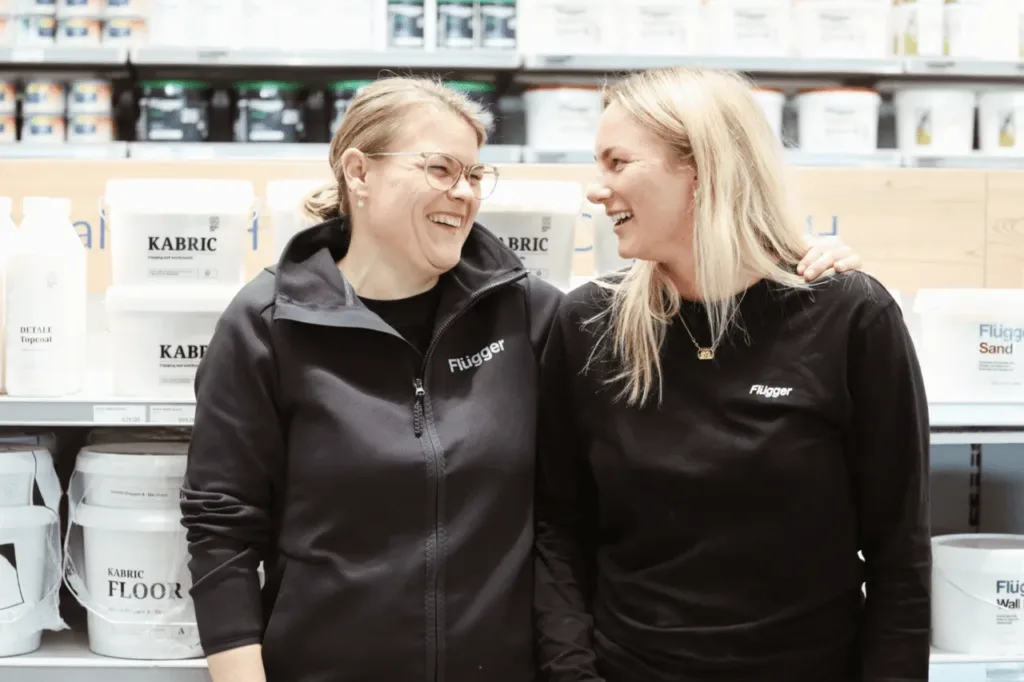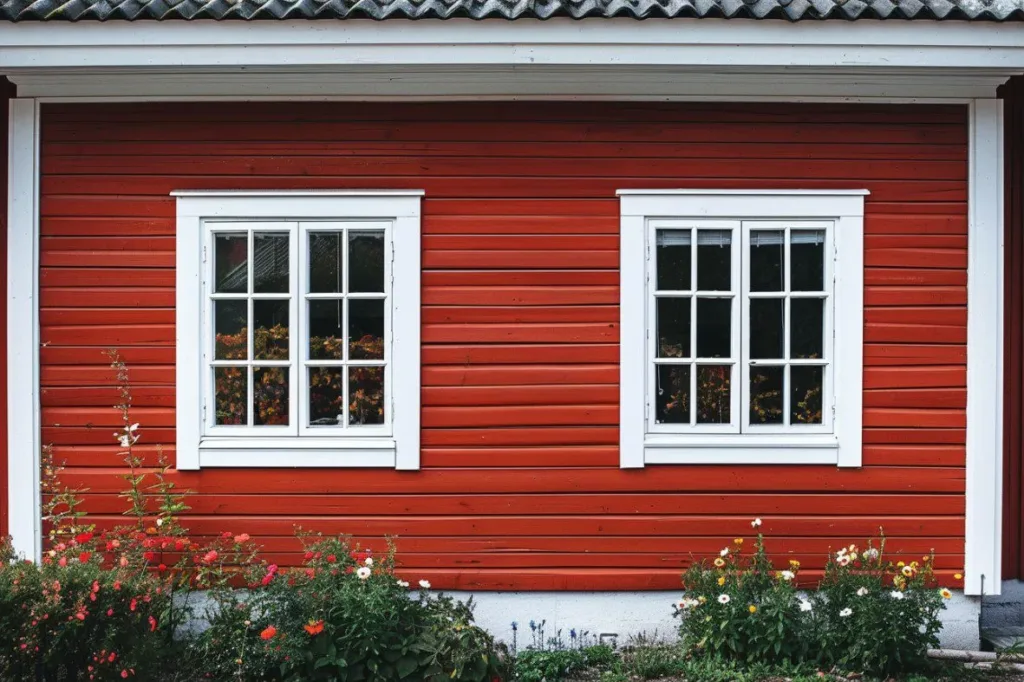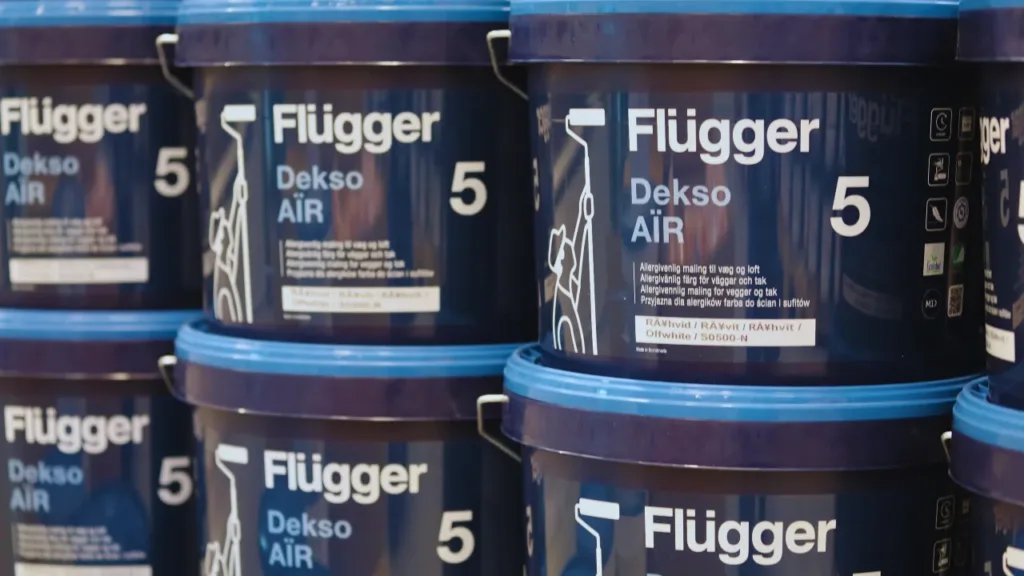Home / About Flügger / Corporation
Corporation
Find information about Flügger’s Board, management and business area managers. Additionally, learn about our policies for ESG, diversity, business partners, and environment.
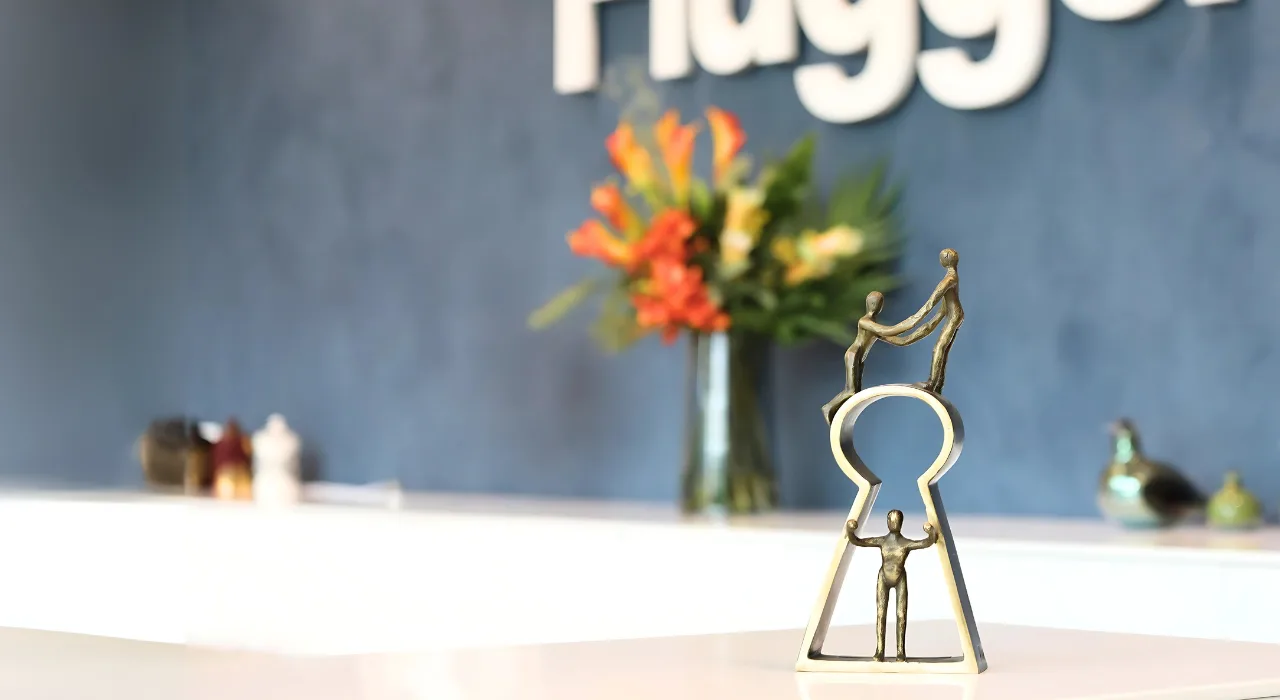
Board of Directors
The Board is dedicated to overseeing the company’s overall development and ensuring transparency, risk management and competent sparring with the Executive Board.
According to Flügger’s Articles of Association, the Board of Directors consists of between three and eight members elected by the general meeting, as well as board members elected by employees. The members are elected for one year at a time. Resigning members can be re-elected.
At Flügger, it is customary to have four board members elected by the general meeting and two elected by the employees. The composition of the Board of Directors aims to ensure that two to three out of the four members elected by the general meeting are independent of the company, the main shareholder and significant supplier or customer interests. One member is also chosen to represent the main shareholder.
The total remuneration of the Board of Directors is stated in the note in the annual report, which you can find here.
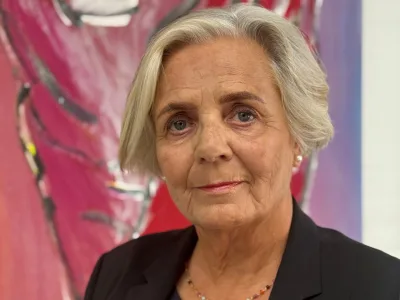
Karen Frøsig
Chairman
Independent
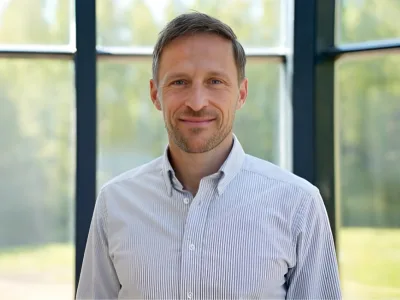
Alexander Vilhelm Martensen-Larsen
Deputy Chairman
Independent

Nicolai Schnack
Member of the Board
Not independent
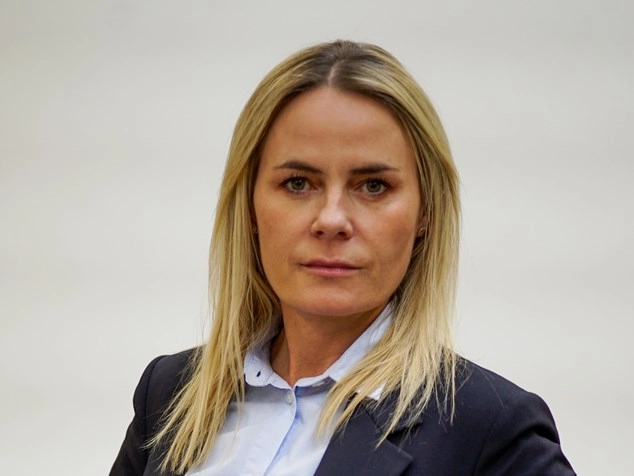
Bettina Antitsch Mortensen
Member of the Board
Not independent
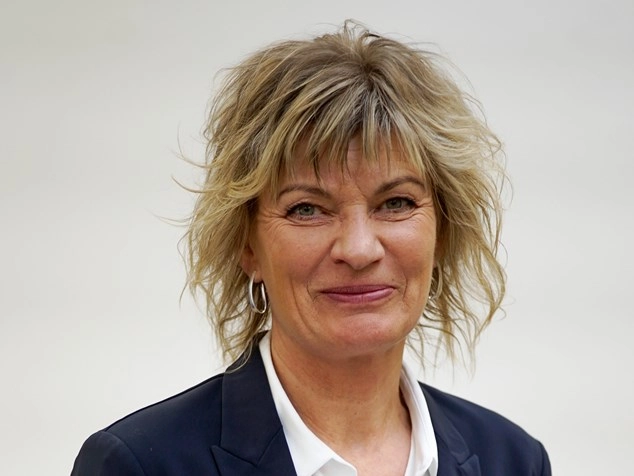
Dorthe Laursen
Employee Representative
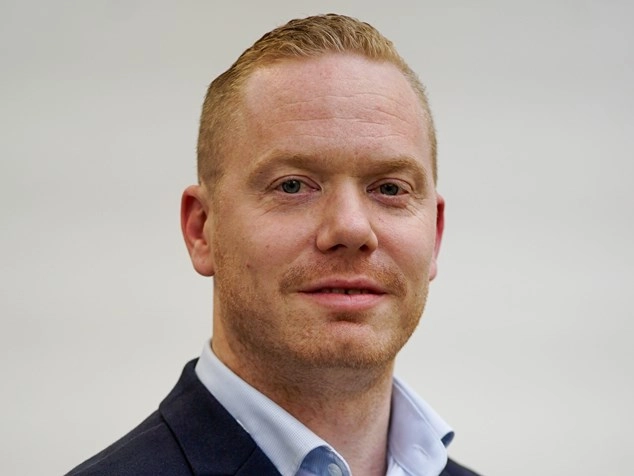
Mikkel Boelskifte
Employee Representative
Audit Committee
The Board of Directors of Flügger has established an Audit Committee, which meets four times a year and consists of the following members:

Alexander Vilhelm Martensen-Larsen
Chairman
(Independent member of the Board)
The primary purpose of the Audit Committee is to monitor the financial reporting process, including monitoring compliance with applicable legislation, standards and other regulations for listed companies regarding accounting and public disclosure of financial reporting, as well as assessing the need for internal auditing.
Nomination and Remuneration Committee
The Board of Directors of Flügger has established a joint Nomination and Remuneration Committe, which has at least one meeting annually and consists of the following members:

Ulf Schnack
Chairman

Karen Frøsig
Member
The purpose of the Nomination and Remuneration Committee is to nominate and recommend candidates for the Board of Directors, contribute to ensuring a composition in accordance with specified criteria, as well as ensure compliance with the Remuneration Policy and general guidelines for incentive pay, and make proposals for remuneration to the Board of Directors and the Executive Board.
Management
Flügger’s Management team is responsible for the day-to-day management and for putting the decisions made by the Board of Directors into action. With a strong understanding of both the market and the organisation, the Management leads Flügger’s strategic development, financial performance and international presence.
Business Area Managers
Flügger’s business area management includes HR and communication, sales and marketing, production and innovation, and branding and design. These managers are responsible for implementing strategic decisions into daily results with a focus on market needs, operational efficiency and customer experience.
Through close collaboration across functions, the management team contributes to Flügger’s overall development.

Marlene von Essen-Müller
Senior Vice President
People, Communication & Culture
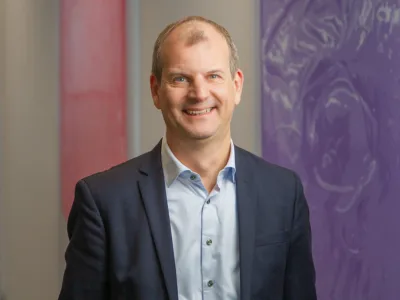
Anders Klamer
Senior Vice President
Commercial Nordic
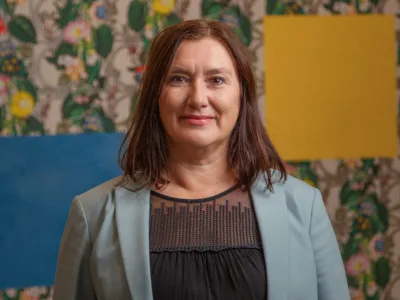
Anette Beck
Senior Vice President
Supply Chain & Innovation
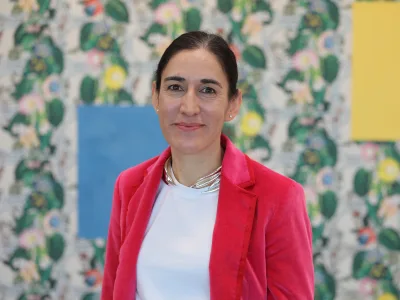
Charlotte Ottesen-Hansen
Senior Vice President
Brand & Business Development
ESG
At Flügger, we believe in the value of preserving and retaining rather than discarding in favour of new products. That is why we develop high-quality products that help extend the lifespan of materials and contribute to healthier indoor environments.
We also believe that colours make a difference. They can refresh, refine, reinforce, resize, reshape, and revolutionize. Colours help to set the mood in our homes and define our surroundings.
At Flügger, we appreciate all colours, but green is particularly close to our hearts – and has been for a long time. It reflects our long-standing commitment to sustainability, circular economy and responsible product development, all anchored in our Flügger Organic strategy.
Our Sustainability Goals
In 2024, Flügger launched the strategy Flügger Organic – Delivering sustainable value, which builds on our core belief in contributing to a greener industry. The strategy follows up on our previous Going Green initiative and marks the next step in our sustainable development – both from a business and environmental perspective.
View more less
Our ambition is to be the preferred choice for both professional painters and quality-conscious consumers by offering environmentally friendly and inspiring solutions. With the Flügger Organic strategy, we are expanding our climate efforts from production to the entire value chain.
We are committed to three key ESG targets by 2030 and 2050:
- 100% eco-labelled paint by 2030
- 95% of packaging with at least 50% recycled plastic by 2030
- CO2- neutral production by 2050
Read more about our strategy, how we work to realise our goals and what we have achieved so far in our latest annual report here.
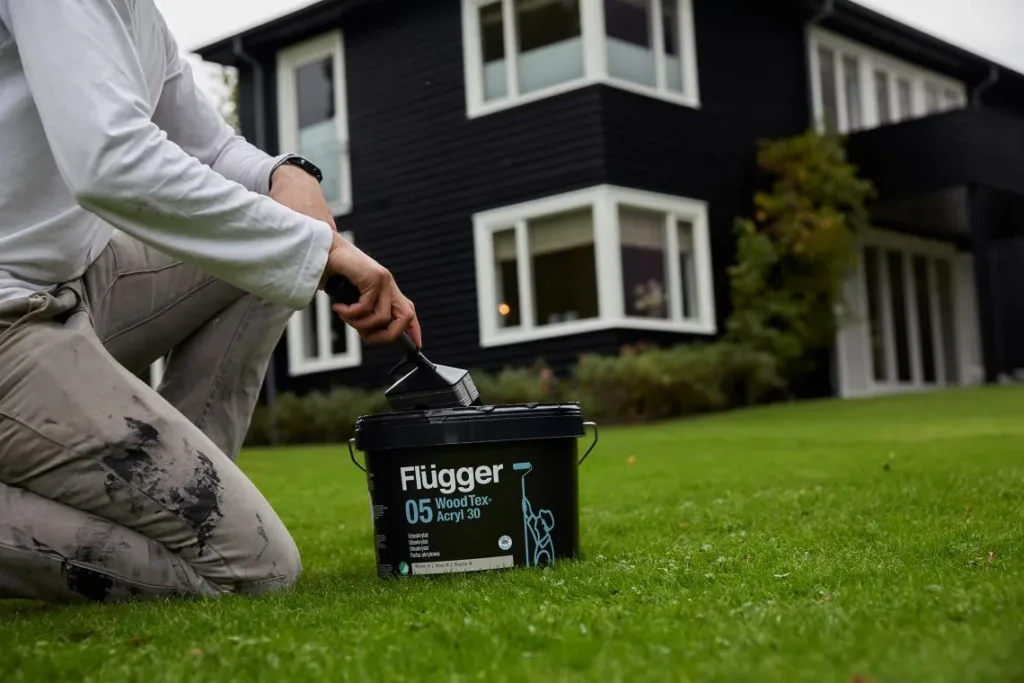
Our Products, Packaging & Production
At Flügger, sustainability starts with our products – both the contents of the buckets and the packaging itself. 99 % of our sold liquid products are water-based, and over 80 % are certified with the Nordic Swan Ecolabel or the EU Ecolabel. But we do not stop here – we continuously work to improve the environmental and health profile of our products year by year.
We are also committed to reducing the environmental and climate impact of our production. That is why we are working to reduce CO₂ emissions from our factories, decrease wastewater volumes, and ensure that as much of our waste as possible is recycled. At our factory in Kolding, for example, wastewater is cleansed and reused, while our plastics plant in Sweden recycles production waste directly.
Our Social Responsibility
At Flügger, sustainability is also about people. We strive to be a workplace where employees thrive, grow professionally and feel free to be themselves. That’s why we focus on well-being, mental health, skills development and diversity throughout the organisation.
We also support initiatives that make a positive impact on society. With a long history of contributing to charitable causes, we engage in partnerships where we can use our products, skills, or voice to help create a more inclusive, colourful, and sustainable future.
Read more about our partnerships here.
Diversity Policies
Diversity Statement in accordance with sections 107d and f of the Danish Financial Statements Act.
Business Partners & Suppliers
Flügger’s Code of Conduct outlines our ambitions and requirements for working with suppliers and other business partners. It reflects our core values and strong commitment to economic, environmental and social sustainability.
Flügger supports the principles of the UN Global Compact and the ILO conventions, and has established a Code of Conduct applicable to all Flügger entities – including subsidiaries and suppliers.
In addition, we enforce a set of Sustainability Principles for Suppliers. These cover areas such as human rights, labour conditions, environmental responsibility, anti-corruption and regulatory compliance – and are integrated into our contracts. These standards are non-negotiable, but we maintain them through constructive dialogue and long-term cooperation with suppliers – for the mutual benefit of all parties in our value chain.
Sustainability principles for business partners and suppliers: show hide
Sustainability principles for business partners and suppliers:
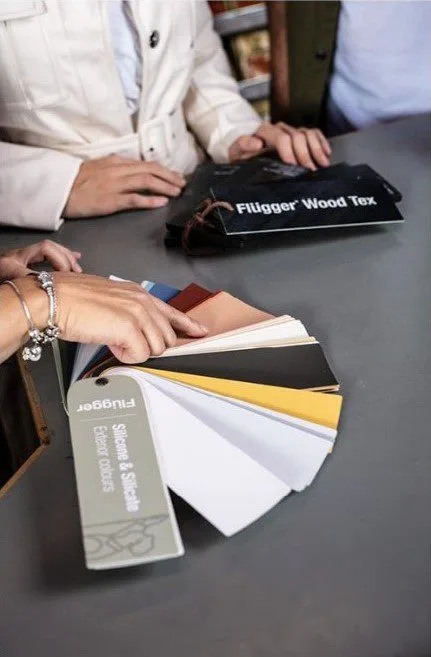
Environment & Quality
Flügger develops, produces and sells high-quality paint solutions for both professional and private customers. Our work is driven by innovation, expertise and responsibility – ensuring that our products and operations support a more sustainable future.
Flügger's development
Our journey began in 1978, when Flügger built a new production facility in Kolding, Denmark, designed exclusively for the manufacture of water-based paints – one of the first of its kind in Europe.
Part of the journey involved replacing heavy metal-based pigments with new alternatives that maintained colour fastness and durability for outdoor use.
View more less
In 2005, our facilities in Kolding and Bollebygd (Sweden) achieved ISO 14001 certification, followed by our Gdansk factory in 2011 and our lab and procurement functions in Rødovre (DK) in 2021.
In recent years, our focus has shifted to reducing biocides and enhancing the health and environmental profiles of our products. Today, most of our indoor paints carry the Nordic Swan or EU Ecolabel.
We aim for full product transparency – often going beyond legal requirements – so customers know exactly what’s inside. Our priorities are quality, expertise and customer satisfaction, supported by sustainable production and clear communication.
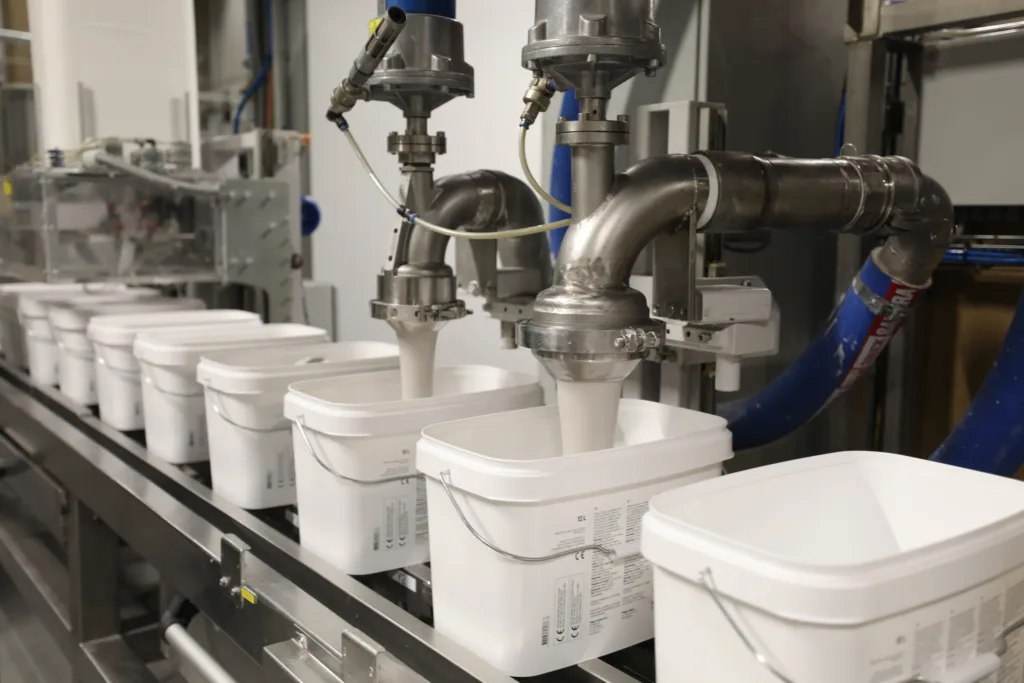
QHSE Principles
The purpose of the QHSE Principles (Quality, Health, Safety, Environment) is to support a safe, sustainable, and financially healthy company which delivers high quality products and that continuously improves and mitigates risk.
The principles apply to the work related to environment, health and safety and quality and cover all countries, sites & shops, and employees within Flügger group A/S and its 100% owned subsidiaries (Flügger).
View more less
To fulfill the purpose and commitments Flügger will:
- Comply with relevant laws, regulations, and other requirements. We work to fulfill the needs and expectations of Flügger interested parties.
- Work actively to strengthen our safety culture and continuously improve safety and the work environment. We work towards zero accidents and hazardous situations at our factories, warehouses, stores, and offices.
- Improve the work environment for our customers by continuously optimizing the product formulas.
- Reduce our environmental impact by waste reduction, recycling, energy optimization, water optimization, and other initiatives.
- Focus on end-to-end quality by supplier assessments and audits including transportation to Flügger. Optimization of in-house processes, inbound- and outbound control, internal transportation, customer claim handling and non-conformity rectifications.
- Set targets and initiate improvements based on analysis of our performance as a part of our zero-defect culture.
- Base our decisions on facts. Changes and new initiatives are based on analysis and risk assessment, with the overall performance of the company in mind.
- Be transparent about our QHSE performance to customers and other interested parties.
Implementation
At Flügger, quality, health, safety and environmental responsibility are key priorities. We continuously work to optimise and improve all aspects of our business – from product development to customer experience and operations.
View more less
How Flügger plans to uphold the QHSE Principles:
- The implementation of the principles is done in cooperation between management and employees.
- Management takes the lead and acts as role models to secure a safe work environment in Flügger.
- All employees and managers are responsible for minimizing risks, improving safety, environment, and quality, and to report and register risks and flag improvement possibilities.
- We have an independent QHSE organization that works proactively with optimizing quality and effectiveness of the Flügger management processes.
- We use the principles as a baseline for developing targets and KPIs.
- We communicate the principles to all employees at relevant meetings to make sure that it is fully implemented and understood, and to evaluate if the principle is still fit for purpose and sufficient. The principles will also be reviewed at the quarterly QHSE board meetings with top management.


